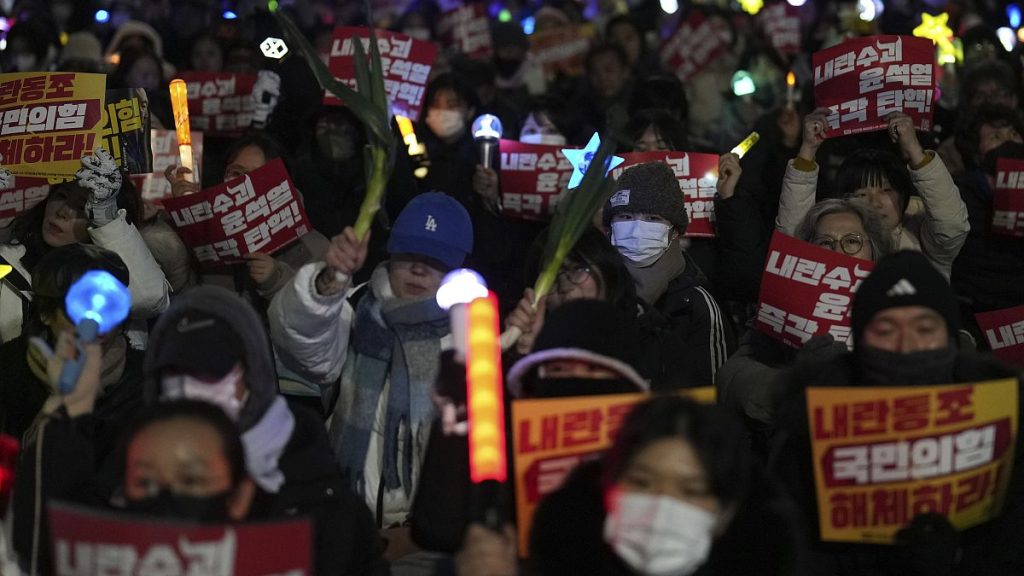The political landscape of South Korea has been thrown into turmoil following President Yoon Suk-yeol’s short-lived attempt to impose martial law, a move that has sparked investigations, arrests, and impeachment efforts. Yoon’s declaration, ostensibly aimed at curbing “North Korea followers and anti-state forces,” was met with swift resistance, overturned by the opposition-controlled National Assembly within hours. This unprecedented action, reminiscent of South Korea’s authoritarian past, has triggered a rapid unraveling of Yoon’s presidency, raising serious questions about his leadership and the stability of the government.
The fallout from Yoon’s attempted power grab has been swift and dramatic. Police raids have targeted key institutions, including the presidential office, in an effort to gather evidence related to the martial law decree. These investigations have led to travel bans for Yoon and other high-ranking officials, and the arrest of several key figures, including the former defense minister, Kim Yong-hyun, and two police chiefs accused of obstructing lawmakers from entering the National Assembly to countermand the decree. Kim’s alleged suicide attempt while in custody further intensifies the gravity of the situation.
The legal implications for Yoon and his associates are substantial. They face potential charges of insurrection, a crime that carries the death penalty. Testimony from military officials suggests that Yoon personally directed efforts to prevent lawmakers from accessing the National Assembly, further implicating him in the attempted suppression of democratic processes. Kim Yong-hyun’s statement acknowledging his role in the martial law imposition adds another layer of complexity to the legal proceedings.
While President Yoon has issued an apology, the damage to his credibility and political standing appears irreparable. The leader of his own party has publicly acknowledged the need for Yoon’s departure from office, suggesting a coordinated effort to manage the president’s exit. This admission of failure from within Yoon’s own ranks underscores the depth of the political crisis and the widespread condemnation of his actions.
The opposition, led by Lee Jae-myung, is pressing forward with impeachment proceedings against Yoon. Their initial attempt was thwarted by a boycott from Yoon’s party, but they remain determined to remove him from office. Lee has vowed to continue impeachment efforts until they are successful, aiming for a resolution by Christmas. This unwavering commitment to ousting the president reflects the deep political divisions within South Korea and the opposition’s belief that Yoon’s actions represent an unforgivable breach of democratic principles.
Adding to the domestic turmoil is the international response, particularly from North Korea, which has seized upon the situation to criticize Yoon as a “traitor” and his military as “gangsters.” This condemnation from Pyongyang highlights the regional implications of South Korea’s political instability, potentially exacerbating tensions on the Korean Peninsula. The ongoing investigations, potential legal battles, and the looming threat of impeachment create a highly volatile political climate in South Korea, with the future of the presidency and the direction of the country hanging in the balance. The rapid deterioration of Yoon’s leadership, coupled with the strong opposition response, signals a profound shift in the political landscape, the consequences of which are still unfolding.














